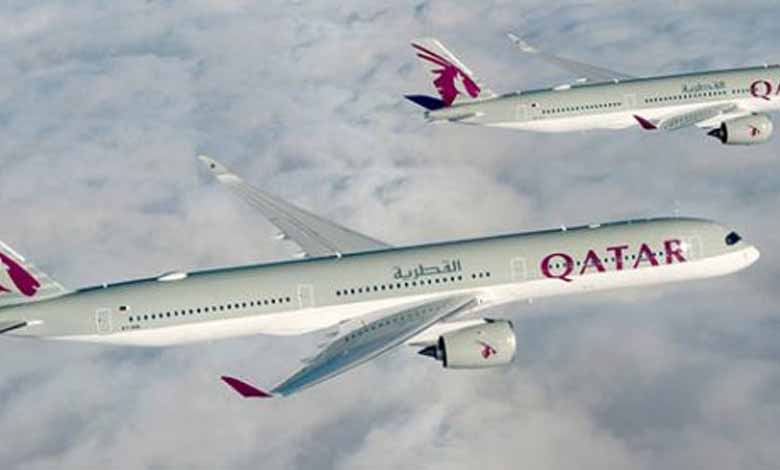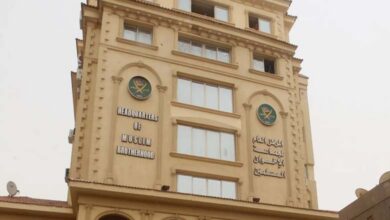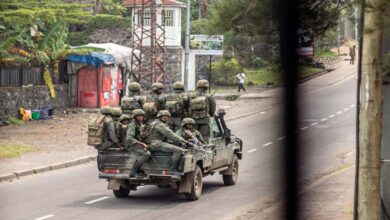Qatar-Airbus… New developments as Doha loses procedural claims

New developments in the case of Qatar and Airbus International. The former is trying, by all means, to win the judicial dispute through many allegations that are circulated through its electronic platforms.
In the latest of these moves, a British judge agreed to grant Qatar Airways a relatively quick trial against Airbus in a dispute over aircraft safety but rejected several procedural claims including an attempt by the company to split the case in two.
According to the judge’s decision, Airbus could then choose between trying to continue delivering A350s to Qatar Airways, but that would mean amending payment terms or trying to sell all of the rejected aircraft to other companies such as Air India, which sources in the sector said might apply for the purchase.
This followed Qatar Airways’ request to the British High Court to split the case and order Airbus to conduct a more thorough analysis of matters affecting the system of protecting aircraft from lightning strikes on commercial aircraft once a year on average, in addition to its request to prevent Airbus from attempting to deliver more A350s to Qatar or resell any aircraft that were not delivered to other airlines during the consideration of the dispute between the two sides.
The judge rejected both requests but agreed to Qatar’s request for a speedy trial in the main safety dispute and the contract between the two sides.
Qatar had previously decided to ban more than 20 A-350s after the erosion of the outer coating revealed damage or gaps in the anti-lightning network. It said that this raises questions about the safety of the aircraft concerned, refused to receive more A-350s before further analysis and requested a billion dollars in compensation.
At the end of last month, two informed sources said that Airbus canceled the contract to buy a third A350 requested by Qatar Airways after the airline refused to deliver in an ongoing dispute over the damage to the long-range surface of the aircraft.
Twenty-three A350 planes were grounded by the airline in a dispute over protection against exposed and damaged lightning, bringing the airline’s claim to just over $1 billion, according to Reuters International.
The two sides have been at odds for more than a year over the accelerated surface damage, which the airline says raises questions about the safety of the planes, with the Qatari organizer grounding the planes as the problem arises.
Airbus, supported by its regulator, denied any safety problems and responded to Qatar’s refusal to take more A350s until the problem was resolved by canceling the A350s’ undelivered deals one by one and canceling a separate A321neos contract.
Earlier, Bloomberg News reported that Airbus plans to postpone a planned increase in A350 production due to the combined effect of the Ukrainian war and the Qatari conflict.
Qatar Airways said the superficial flaws in Airbus SE’s A350 aircraft create a risk of igniting fuel tanks, fueling its claim that safety is at stake in its severe legal dispute with the aircraft manufacturer.
Bloomberg said Qatar Airways had the support of the local aviation safety organization, but the European Union’s aviation safety agency said the plane was airworthy.
An Airbus spokesman said that it rejects Qatar Airways’ continuous and public misunderstanding of the nature of these issues and their impact on the continuing airworthiness of the A350, stressing that the aircraft manufacturer worked with EASA from the beginning and continues to do so.
This comes after Qatar Airways refused to pay Airbus $220 million in compensation for not accepting the A350.
In January, a court document revealed that Qatar Airways had demanded Airbus Aircraft Manufacturing Company $618 million in compensation, as part of a dispute over the erosion of the surface of A350s. This was a failed deal concluded by Qatar without confirming the safety of those aircraft and the waste of public funds, in an attempt to compensate for its losses and its huge economic collapse during the past year.
Airbus also claims an additional $4 million for each day that Doha ceased operating its 21 aircraft of this type at the order of Qatari regulators, causing this defect, which includes corrosion and holes in the lightning surface.
The crisis emerged months ago because of roof damage, including paint and a key layer that protects against lightning, which Qatar Airways says has so far prompted local regulators to suspend 21 flights.












